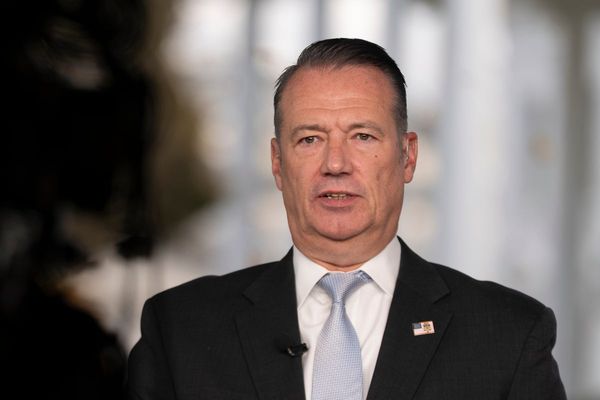The High Court has denied a constitutional challenge against a West Australian law that can keep people convicted of relatively minor crimes in indefinite detention.
The decision, handed down in a written judgement on Wednesday, has drawn outrage from human rights lawyers who say the legislation is unconstitutional, discriminatory and disproportionately affects First Nations people.
Noongar man Peter Garlett, 28, lost his appeal to the High Court against the High Risk Serious Offenders Act 2020, which broadened WA's powers to put what it called the state's "most violent criminals" behind bars indefinitely.
Garlett was deemed a "serious offender" under the act and put in indefinite detention after he had served a three-and-a-half year sentence for a robbery in 2017.
He pretended to be armed with a handgun during the burglary and used threats while stealing a necklace and $20 cash.
It was his first offence as an adult.
Garlett's appeal argued that the use of the act to detain him indefinitely was unconstitutional.
Court says law is constitutional
The High Court majority concluded that robbery was a serious enough offence to be included in the act and endorsed the existing process, where judges decide when it should be applied based on the risk of reoffending.
"It is reasonable to assume that, by fixing a maximum penalty of life imprisonment in some circumstances, the legislature apprehended that the harm inflicted by a robbery may be very grave," the written judgement said.
"It is always for the court to determine whether there is an 'unacceptable risk' that the offender will commit such an offence [again]."
Roe Legal, which represented Garlett, said he was released from detention earlier this year but remained under a supervision order and curfew as a serious offender.
"Roe Legal is disappointed in the result and surprised that the court has taken this approach," a spokesperson said.
"It has immediate concern for the mental health and wellbeing of prisoners facing indefinite detention and urges the Department of Corrections to monitor their safety closely."
The spokesperson said the matter could be referred to the United Nations Human Rights Committee.
"The finding is in our view inconsistent with Australia's obligations under the International Covenant on Civil and Political Rights to protect the liberty of citizens from arbitrary detention," they said.
Discriminatory element
Hannah McGlade, a Noongar woman and human rights lawyer who assisted with the High Court challenge, said the judgement was shocking.
"That's an erosion of fundamental human rights and civil rights and obviously prone to the risk of racial profiling," she said.
Passed in 2020, the High Risk Serious Offenders Act expanded the scope of a similar law that applied only to dangerous sex offenders.
The change broadened WA's powers to put the same restrictions – including indefinite and continued jail time after a person had served their sentence – on offenders who committed other offences including murder, stalking and robbery.
Dr McGlade, an associate professor of law at Curtin University and an expert member of the UN Permanent Forum for Indigenous Issues, said the law went against a national commitment to reduce Indigenous incarceration in Australia.
"It's very well known that Aboriginal people have a cohort for this offence related to poverty," she said.
"It certainly was going to be increasing the Aboriginal incarceration rate and potential for further deaths in custody."
She said the matter should now go to the UN.
WA welcomes decision
WA Attorney-General John Quigley said in a statement that the government welcomed the High Court's decision.
"Western Australians have the right to feel safe in their communities and these laws enable courts to keep the most dangerous criminals behind bars in line with the community's expectations," Mr Quigley said.
But the National Justice Project, which backed the Constitutional challenge, echoed Dr McGlade's concerns that the law unfairly discriminated against First Nations people.
Principal solicitor George Newhouse said it was discriminatory because it required prior imprisonment, convictions and social disadvantage to be considered when making a decision about whether to indefinitely detain a person or put conditions on them.
"Instead of weighing them down with a ball and chain, the WA government should provide people leaving the criminal justice system with the support they need to integrate back into the community," Mr Newhouse said.
"Why continue to punish them if they have already done their time?"
'It gutted me'
Derek "Digger" Charles Ryan was a third party in the High Court case, having also been placed under a serious offender order after serving two jail sentences amounting to more than 12 years for robbery.
He has been released but is restricted under a supervision order and says he is devastated by the decision.
"It gutted me," Ryan said.
"That was my knight in shining armour, that was my emotional rescue — I was waiting for the order to get lifted."
He said being put under a curfew as a serious offender has deeply affected his mental health and ability to thrive after being released from jail, because it essentially predicted he would commit a crime when he had already served his sentence.
Ryan also believes the law has the potential to be abused.
"It makes me angry, it makes me depressed," he said.
"Anyone who gets released is a danger, is a risk.
"They can't read minds."







